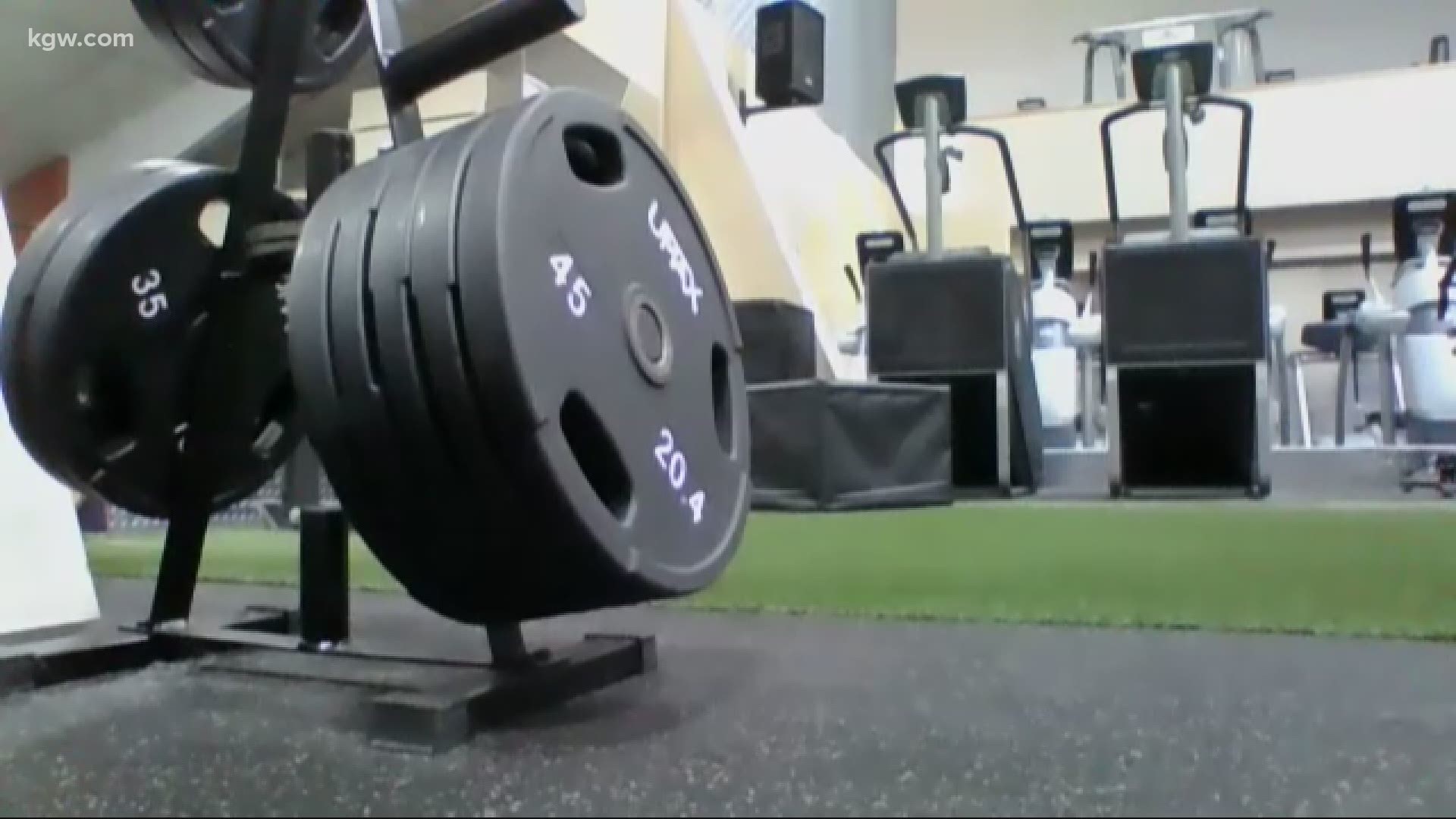HOOD RIVER, Ore. — When Gov. Kate Brown announced Oregon was getting new, color-coded guidelines for COVID-19 restrictions following her two-week freeze, Hood River County was initially placed in the "high risk" category, but indoor gyms would have still been allowed to reopen at limited capacity.
Now, it's in the "extreme risk" category along with most other counties in the state, meaning its gyms will have to remain closed for at least the next two weeks. But some argue that closing gyms during the pandemic is a mistake.
"It's been a roller coaster of ups and downs and a test my strength and will to survive," said Dianna Risley, general manager of Gorge Athletic Clubs.
Gorge Athletic Clubs has two locations, one in Hood River and another in The Dalles, which is in Wasco County. Both counties are considered "extreme risk."
"It's very frustrating to feel like we're being punished for people's behavior in their own homes," Risley said.
Risley and other gym managers contend they provide more than just a place to gather, but a place that helps with the mental health and well-being of their clients.
"We are in the health and wellness industry, and we know that exercise is preventative medicine and it's the saving grace for many, many Oregonians. Closing the gyms is incredibly detrimental to the health and well-being of Oregonians."
Among those who know the benefits a gym can provide is 74-year-old Tim Zenker of The Dalles. Before gyms shut down in March, he would visit Gorge Athletic Club multiple times a week to keep his body moving.
About a decade ago, Zenker was diagnosed with Parkinson's Disease.
"The general advice they give you is, use it or lose it." Zenker said, "The whole point is to keep active because there's a lot of evidence that shows when you stop being so active, you lose the abilities."
He said when the gyms closed down and cut off access to pools he used for aqua therapy, he and his family saw a rapid decline in his health.
"I've gone from walking a couple of miles at a time if I wanted to, to being in a wheelchair. That's how much taking away the exercise did."
He tried walking along an outdoor track with a friend, his wife Amy Marshall said. After about a week, he had to be helped or use his walker. Roughly a couple weeks after that, even walking was too much and he started using his wheelchair.
Once clubs reopened, he was back in the pool. Some of the deterioration in his health reversed, but without any of his specialized exercise classes because of safety concerns over the spread of the virus, his mobility wasn't what it used to be.
"He came back some from the pool," his wife Amy said, "and he went so downhill that he was walker all the time at home, falling a lot and eventually in a wheel chair."
Zenker is used to being active. He's a former short triathalon runner, has ran the Hood to Coast Relay multiple times and was also one of the football coaches for The Dalles High School's football team.
"On a good day, I get to go outside and walk to the park, which is only a block away thank heavens, with a walker and a helper," Zenker said.
When Hood River and Wasco counties were deemed "extreme risk" and closed indoor gyms, Zenker said "It's depressing because, especially when you watch your body deteriorate so that your wife has to haul you around."
Risley said Zenker isn't alone. She talked about a veteran that she said has PTSD and has told her in the past that the gym is "literally his saving grace and we're the only reason he is still alive."
Risley wants the state to see this impact and has sent letters to the governor asking to be included in discussions surrounding indoor gyms. She said she would like to see the state sit down with people in the industry who have decades of experience and listen to them about what they are doing and learn how they can do things better.
"Being in the wellness industry, we all follow science and believe this virus is critical and we need to curb it. We want to be included in those conversations, instead of shut out in those conversations," Risley said.
KGW News reached out to Gov. Brown's office about why indoor gyms in the "extreme risk" categories must remain closed.
A spokesperson said that indoor gyms in "extreme risk" counties are closed to limit interaction between people and the number of places where people might have close physical contact.
Recently, the governor announced a $55 million commitment to support Oregon businesses that have been hurt by COVID-19 restrictions.

